The Aston Martin DB6 Sports Car
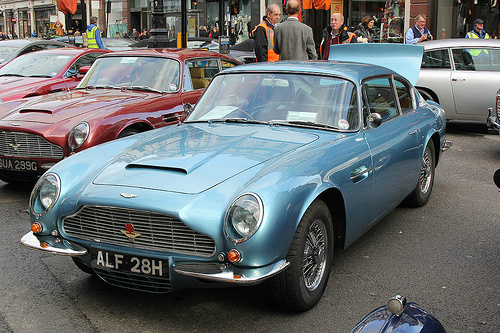
1970 Aston Martin DB6 Image
from Classic to Modern
Aston Martin DB6 Mark 1
THE CAR
The DB5 sports car was produced until late in 1965 by which time a total of 1,023 units had been built, making it one of most popular sports cars from Aston Martin.
The body styling was by the noted Italian coachbuilder Carrozzeria Touring of Milan, who then submitted proposals for the design of the DB6.
Unfortunately, this submission was rejected by Aston Martin who felt obliged to concentrate instead on their own version currently under development.
However, as part of the trials of the proposed new car, it was found that, due to the styling of the fastback, there was a tendency for the rear wheels to lose traction when the car was driven hard.
This was due to adverse aerodynamics in the rear section, and was overcome by extending the chassis by 3.75 inches, and adding a small spoiler to the rear, which together produced greater stability at high speed.
Consequently, production of the new two door coupe, designated the Aston Martin DB6 sports car, began in September 1965, and it was duly launched a month later at the London Motor Show.
The DB6 differed fundamentally from its predecessor by having a longer wheelbase, split bumpers at both front and rear, and a different profile when viewed from the side.
The styling of the rear section took its lead from the Ferrari 250 and which, subsequently, proved not in keeping with some of the more tradition customers.
Additional highlights included:
- facility to adjust the rear shock absorbers from within the cabin
- Quarter lights on the front door
- A different rear light assembly
- Raising the roof by 2 inches to improve headroom
- Rear passenger had more leg room as a result of the longer wheelbase
- Chrome wire wheels were standard equipment.
Optional equipment included power steering, air
conditioning, a three speed automatic gearbox, a full-length Webasto sunroof, and
a more powerful Vantage engine.
Unlike the DB5, which used the Superleggera (meaning super light) tubular frame structure patented by its coachbuilder Touring of Milan, the DB6 used the more conventional system of adding the body to a platform frame.
This system was suited to the DB6's longer wheelbase in which the extended rear section required the additional strength available from a sheet metal frame.
Interestingly, the DB6 with this alternative structure only weighed 17 pounds more than the DB5.
A combination of a steel body and frame produced a curb weight of 1474 kg, with disc brakes all round.
A
total of 1,967 DB6's were built, including the Mark 2, Volante, and Shooting
Brake variants.
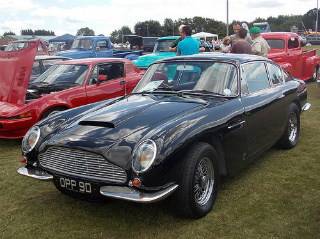
1966 Aston Martin DB6 Mk. I Vantage This 1966-69 variant had a 325 bhp, 4 litre, straight-6 that gave it a top of 150 mph with 0-60 in 8.4 secs. This eye-catching beauty was seen at a Classic Car Show in Surrrey
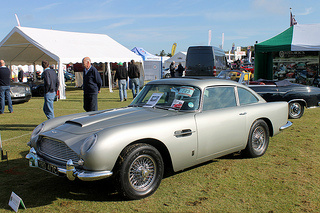
Aston Martin DB6
THE ENGINE
The DB6 sports car was powered by a 4 litre, Aston Martin, double overhead cam, straight-6 engine, that developed 282 bhp at 5500 rpm, and 295 ft/lbs of torque at 4500 rpm.
Fitted with a ZF five speed manual gearbox, three SU carburettors, and a compression of 8.9:1, it produced a top speed of 150 mph, and a 0-60 mph time of 8.4 secs.
The more powerful Vantage engine, offered as an optional extra, developed 325 bhp at 5750 rpm, and 295 ft/lbs of torque at 4500 rpm.
Fitted with three twin choke Weber carburettors, a 9.4:1 compression, improved manifold, larger inlet ports, modified camshaft, and readjusted ignition timing, it produced a top speed of 162 mph, with a 0-60 mph time of 5.9 secs.
Technical Data DB6 Mk1 and 2 DB6 Mk1 and 2 Vantage DB5
Production 1965-1971 1965-1971 1963-1965
Engine, cc 3995 3995 3995
Cylinders, bhp 6, 282 6, 325 6, 282
Torque ft/lbs 295 295 288
Top Speed mph 150 162 143
0-60 mph, secs 8.4 5.9 8.1
0-100 mph, secs 22.1 13.8 25.7
Standing 1/4 Mile, secs 16.4 14.3 16.0
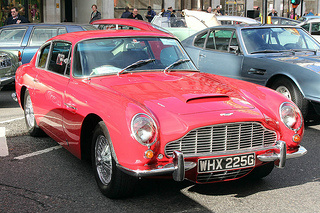
1968 Aston Martin DB6 Image
Aston Martin DB6 Mark 2
In 1969, the Mark 2 sports car variant was introduced with the following identifiable feature: the front and rear wheel arches were flared in order to accommodate the wider tyres fitted to the 1/2 inch wider wheels.
Also, available as an optional extra, were electronic fuel-injection from AE Brico, together with a modified cylinder head to withstand the raised compression.
Both Standard and Vantage engines were unchanged from the Mark 1 variant.
Aston Martin DB6 Volante
Alongside the DB6 coupe at its launch in 1966 at the London Motor Show, was the 2+2 convertible variant, better known as the DB6 Volante.
By 1971, just 140 of the Volante were built, which included 29 cars with the optional Vantage engine
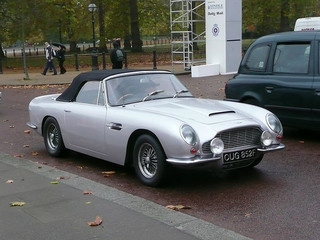
Aston Martin DB6 Volante
Aston Martin DB6 Shooting Brake
As was the case with the DB5, the British coachbuilder Harold Radford converted a total of seven DB6 coupe's into the estate variant, also referred to as the DB6 Shooting Brake, to satisfy demand from the hunting and countryside fraternity.
As before, both Standard and Vantage engines were available. Furthermore, the curb weight of this variant was 1587 kg compared with 1474 kg of the standard coupe.
COMPETITION
Typical competitors of the Aston Martin DB6 included the following sports cars: Ferrari 250 GTO, and the 2+2 Jaguar E-Type Series 2
Jaguar
Ferrari
Technical Data DB6
Vantage E-Type S2 2+2 250 GTO
Production
1965-1971 1968
1963
Engine, cc
3995
4235
2953
Cylinders, bhp
6, 325 6, 266
12, 296
Torque ft/lbs
295
283
217
Top Speed mph
162
150 174
0-60 mph, secs
5.9
6.1
4.4
0-100 mph, secs
13.8 16.0 -
Standing 1/4 Mile, secs 14.3
14.9
12.7
SPORTS CARS FOR SALE
The value of an Aston Martin DB6 sports car coupe in good condition ranged from between $180,000/£112,000 and $280,000/£175,000, whist an example in showroom condition would command in the region of $400,000/£250,000.
see All My Reviews
.
.
Home › Aston Martin Sports Car › Aston Martin DB6 Sports CarAston Martin DB6
ASTON MARTIN LINKS
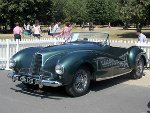
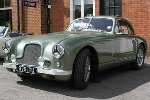
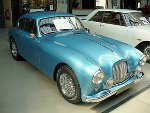

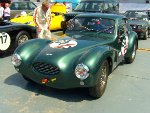
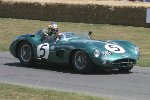
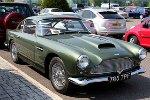
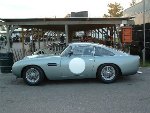
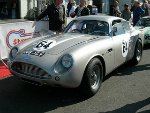
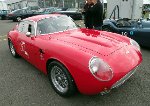
Aston Martin DB4 GT Zagato Sanction
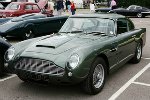
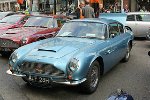
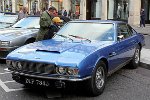
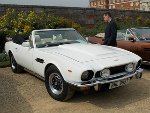
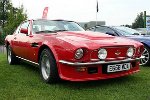

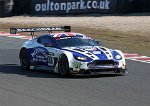
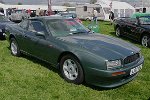
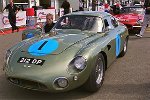
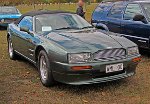
Aston Martin Virage Volante & Vantage
ASTON MARTIN LINKS END





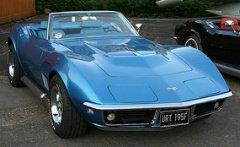
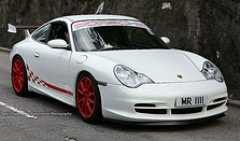
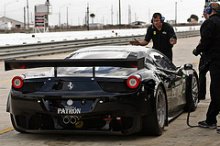
New! Comments
Have your say about what you just read! Leave me a comment in the box below.